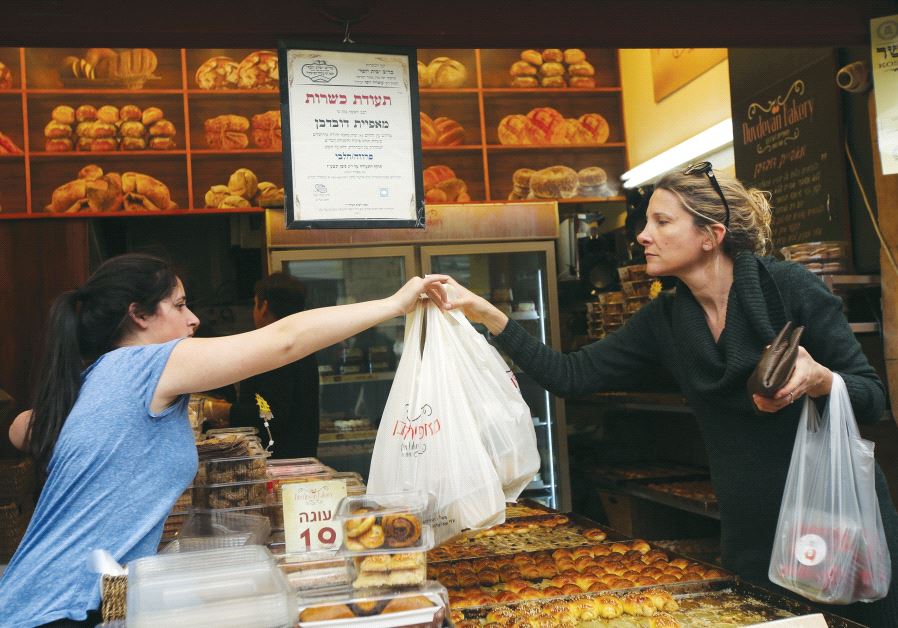The economics of Judaism
In Israel market forces have been the most powerful catalyst of change in the relations between religion and state.
 A Kashrut certificate hangs at the entrance to a bakery in Jerusalem’s Mahaneh Yehuda market(photo credit: MARC ISRAEL SELLEM)
A Kashrut certificate hangs at the entrance to a bakery in Jerusalem’s Mahaneh Yehuda market(photo credit: MARC ISRAEL SELLEM)